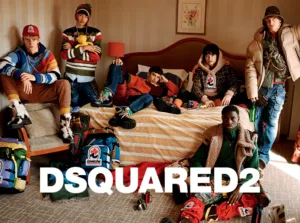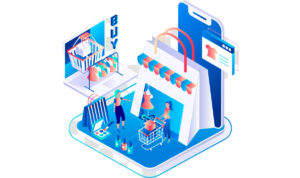By Alyx Kaczuwka, Director of AI Product Development at XY Retail
The glamour of Formula 1 (F1) racing goes beyond the intense rivalries of the drivers, many of whom have colourful social media personalities, and the roars of the engines. It is a world that perfectly intertwines technology, innovation, precision, and attention to detail – characteristics that are highly relevant for any luxury brand. As an example, luxury watch brands like Richard Mille and IWC have long partnered with F1 teams to increase the visibility of their brands and align them to the precision of the motorsport world. Red Bull also rebranded one of their F1 teams to align with their fashion brand, AlphaTauri.
Now, as Business of Fashion has highlighted, other luxury fashion brands are discovering the value of being associated with the world of F1. This year, Palm Angels chose to sponsor the Haas team, which has become a social media favourite largely thanks to the antics of its team manager Guenther Steiner; brands like Berluti, Rhude, Hugo Boss and others have also inked partnerships with F1 teams. Outside of direct sponsorships, there are plenty of other fashion-and-F1 links. Chanel had a viral moment this spring when Charlotte Casiraghi sported the brand’s F1-themed, embroidered t-shirt at the Monaco race this year, and Mercedes driver Lewis Hamilton’s love of fashion has driven attention for Mercedes partner Tommy Hilfiger as well as the other brands he incorporates into his pre-race outfits (including his own brand).
The value of these links is clear – but luxury brands can go deeper than the surface here. For all luxury brands, there are lessons to be learned from F1, whether the brand chooses to partner with a team or not. F1 teams have become luxury brands in their own stead, with much of the driving force (no pun intended) being their ability to harness vast amounts of data to optimize their performance, providing insightful lessons for the luxury retail sector.
Data-Driven Decisions in Formula 1
F1 is a sport built on data. Relying on partners like Amazon AWS to process data from multiple sources ranging from simulations to sensors and apply AI and machine learning techniques to make , these teams have the capacity to do everything from analyzing weather patterns to monitoring tire wear, understanding what affects their fuel efficiency, and evaluating aerodynamic efficiency. Data analysis drives every strategic decision made on and off the track. To improve their race performance, F1 teams meticulously dissect every bit of data collected during testing, practice, qualifying, and the race itself to do whatever they believe will allow them to gain even the smallest advantage in a world where even thousandths of a second can mean the difference can determine pole position or a podium.
Harnessing the data-centric strategies of Formula 1, luxury retail brands can transform their operations and customer engagement. Here’s how to apply this approach in several major areas:
Optimizing Operations
Using data analytics, luxury brands can optimize product mix, inventory, and pricing. Analyzing sales trends, for example, can reveal which items are hot sellers and which ones are underperforming. This analysis can guide production and inventory decisions, minimizing the risk of surplus stock while ensuring popular items are readily available.
Customer data analysis can provide insight into demographics, buying habits, and preferences, revealing what appeals to different customer segments. This insight can inform product design, helping brands create items that are more likely to resonate with their customers.
Similarly, a data-driven approach can guide pricing strategies. By analyzing customers’ price sensitivity and purchasing habits, brands can optimize pricing to maximize revenue and profit margins.
Improving Customer Experience
The F1 approach to fan engagement can serve as a blueprint for enhancing the luxury retail customer experience. Brands can analyze customer behavior data, using AI and machine learning algorithms, to deliver hyper-personalized recommendations and a tailored shopping experience. For instance, a customer who often buys from a particular collection might receive early access to new items in that collection.
Brands can also draw on the F1 approach of sharing rich, detailed information to deepen customer engagement. Providing in-depth product stories, creator biographies, or behind-the-scenes insights into the design process can help customers feel a more profound connection and measurable engagement with the brand, fostering loyalty much like F1 teams do with the personalities of their drivers.
Enhancing Marketing Strategy: Data analytics can supercharge a luxury brand’s marketing strategy. Brands can analyze a vast array of data – including past purchase behaviour, website browsing patterns, and social media engagement – to identify trends and predict future behaviour. This analysis can inform targeted marketing campaigns, helping to deliver the right message to the right customer at the right time, thereby increasing conversion rates and ROI.
Running a luxury brand like an F1 team means placing data at the heart of decision-making. With the right data, luxury brands can optimize their operations, create highly personalized and engaging experiences, and devise marketing strategies that resonate deeply with their customers. Embracing a data-driven culture like an F1 team could help luxury brands accelerate their growth and outpace their competitors in the race to customer satisfaction and loyalty.









